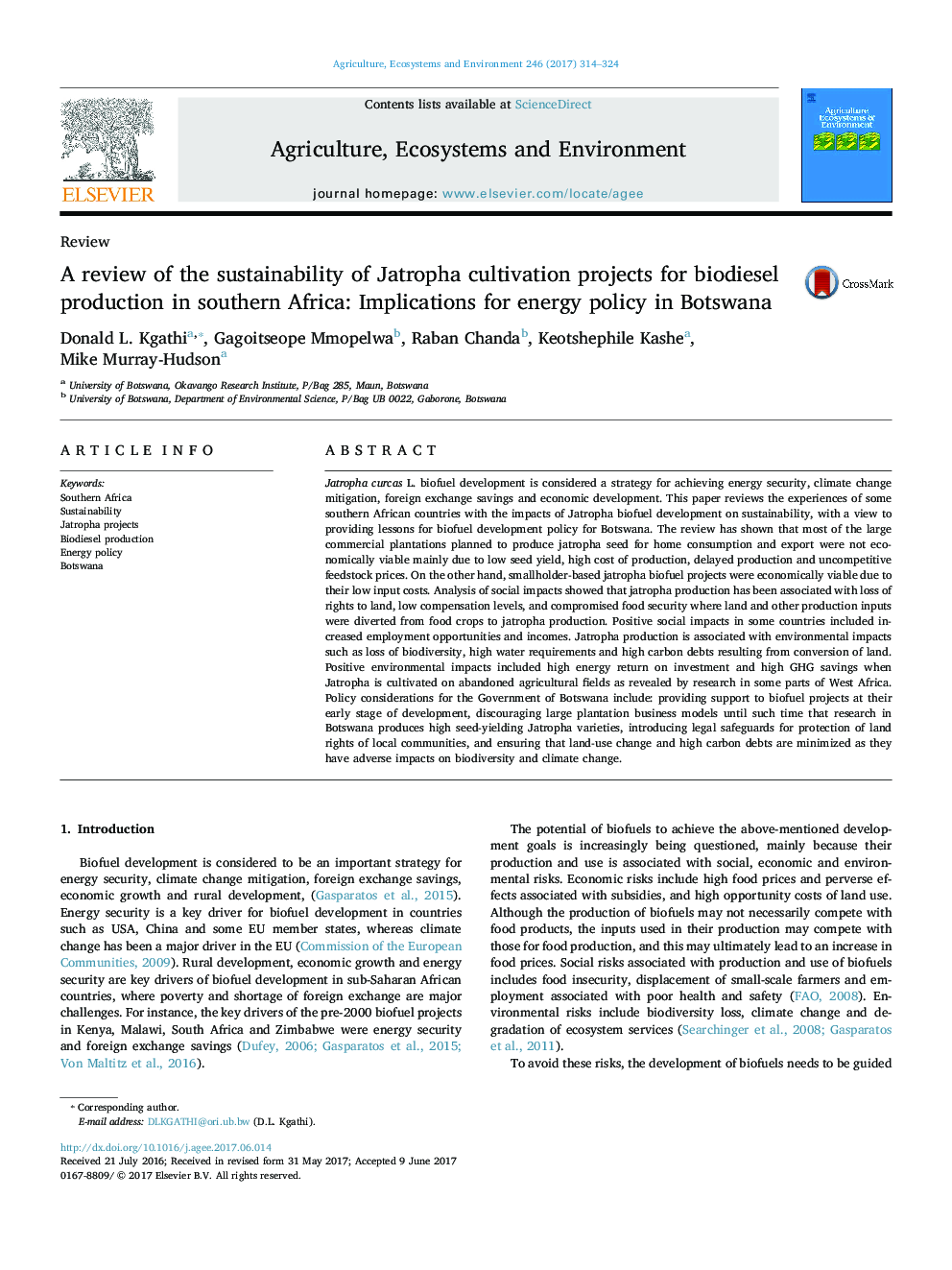| Article ID | Journal | Published Year | Pages | File Type |
|---|---|---|---|---|
| 5538054 | Agriculture, Ecosystems & Environment | 2017 | 11 Pages |
Abstract
Jatropha curcas L. biofuel development is considered a strategy for achieving energy security, climate change mitigation, foreign exchange savings and economic development. This paper reviews the experiences of some southern African countries with the impacts of Jatropha biofuel development on sustainability, with a view to providing lessons for biofuel development policy for Botswana. The review has shown that most of the large commercial plantations planned to produce jatropha seed for home consumption and export were not economically viable mainly due to low seed yield, high cost of production, delayed production and uncompetitive feedstock prices. On the other hand, smallholder-based jatropha biofuel projects were economically viable due to their low input costs. Analysis of social impacts showed that jatropha production has been associated with loss of rights to land, low compensation levels, and compromised food security where land and other production inputs were diverted from food crops to jatropha production. Positive social impacts in some countries included increased employment opportunities and incomes. Jatropha production is associated with environmental impacts such as loss of biodiversity, high water requirements and high carbon debts resulting from conversion of land. Positive environmental impacts included high energy return on investment and high GHG savings when Jatropha is cultivated on abandoned agricultural fields as revealed by research in some parts of West Africa. Policy considerations for the Government of Botswana include: providing support to biofuel projects at their early stage of development, discouraging large plantation business models until such time that research in Botswana produces high seed-yielding Jatropha varieties, introducing legal safeguards for protection of land rights of local communities, and ensuring that land-use change and high carbon debts are minimized as they have adverse impacts on biodiversity and climate change.
Related Topics
Life Sciences
Agricultural and Biological Sciences
Agronomy and Crop Science
Authors
Donald L. Kgathi, Gagoitseope Mmopelwa, Raban Chanda, Keotshephile Kashe, Mike Murray-Hudson,
